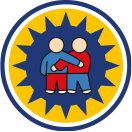Geography
At Park our aims within teaching Geography are:
- To develop their contextual knowledge of the location of places, seas and oceans, including their defining physical and human characteristics.
- To understand the processes that give rise to key physical and human geographical features of the world, how these are interdependent and how they bring about spatial variation and change over time.
- To collect, analyse and communicate with a range of data gathered through fieldwork that deepen their understanding of geographical processes.
- To interpret a range of sources of geographical information, including maps, diagrams, globes and aerial photographs.
- To use ICT to help develop geographical enquiry.
- To develop children’s questioning and analysis thus enabling them to make good progress through KS1 and KS2.
Teaching and Learning
- That we teach Geography in ways that are creative, imaginative, enjoyable and purposeful. Lessons are always adapted to fully support our children’s needs.
- We teach through a skills based curriculum and ensure that there is planned progression within each unit thus challenging all children.
- Upon being questioned giving clear and accurate explanations and in return offering open ended questions to peak interest and assess understanding.
- Where possible making cross curricular links between Geography and other core and secondary subjects.
- The children study their Geography topics in conjunction with other subjects. We teach the knowledge, skills and understanding set out in the National Curriculum through the corresponding programme of study.
- When teaching a unit of Geography teachers are to ensure that that the four areas of Geography are being taught; Place Knowledge, Location Knowledge, Human and Physical Geography and Fieldwork.
- To provide children with a sense of their own identity and provide links within a social, political, cultural and economic background and relationships.
- In Geography we aim to link our unit into Oxfam’s 7 Values where it is possible.
Early Years Foundation Stage
Within the Foundation Stage geographical enquiry skills are promoted and developed through the Curriculum Area of Knowledge and Understanding of the World. The skills are taught through cross-curricular topics as part of the Foundation Curriculum. The national expectation for children at the end of the Early Years Foundation Stage is to describe their immediate environment using knowledge from observation, discussions, stories, non-fiction texts and maps. They will also know some similarities and differences between different religious and cultural communities in this country, drawing on their experiences and what has been read in class. Through reading stories, non-fiction texts and maps children will be able to identify similarities and differences between life in this country and life in other countries.
SEND & Equal Opportunities
Planning should take into account the needs, gender and race within each year group so that all children find the work accessible, stimulating and, whenever possible, appropriate to their interests.
Within Geography, to aid children who have additional needs, we ensure that our lessons are scaffolded and that teaching is explicit; this includes explaining, modelling and questioning. We use technology to model processes and present ideas visually. Flexible grouping of children, enables them to utilise their peers for collaborative learning.
We aim to give all children the opportunity to develop an appreciation of Geography from different cultures, through studying different regions from around the world.

